Herbs to Aid Your Everyday Ailments
Valarian Root
The herb valerian is best known as a remedy for insomnia. However, because many drugs useful for insomnia also reduce anxiety, valerian has been proposed as an anxiety treatment as well.
Our understanding of how valerian might function remains similarly incomplete. Several studies suggest that valerian affects GABA, a naturally occurring amino acid that appears to be related to the experience of anxiety. Conventional tranquilizers in the Valium family are known to bind to GABA receptors in the brain, and valerian may work similarly. However, there are some significant flaws in these hypotheses, and the reality is that we don’t really know how valerian works (or if, indeed, it really does)
Insomnia, the inability to fall asleep or stay asleep, affects around one-third of all adults at least once during their lives. It can have a profound effect on your well-being and daily life.
Based on the available research, take 300 to 600 milligrams (mg) of valerian root 30 minutes to two hours before bedtime. This is best for insomnia or sleep trouble. For tea, soak 2 to 3 grams of dried herbal valerian root in 1 cup of hot water for 10 to 15 minutes.
Willow Bark
The bark of white willow has salicin, a chemical similar to acetyl salicylic acid or aspirin. This is the substance that produce for the pain-relief and anti-inflammatory effects of the willow bark.
The safety and efficacy of willow bark as a treatment for osteoarthritis has been confirmed by a study done in Germany. Findings of this clinical trial were published in the Phytotherapy Research Journal in June 2001. A total of 78 patients took part in the study. The investigators compared the effects of willow bark extract containing 240 mg salicin with placebo in a 2-week, double-blind, randomized controlled trial. The outcome was measured using the pain, stiffness and physical function dimension of WOMAC Osteoarthritis index, a set of standardized questionnaires used by doctors to evaluate osteoarthritis. Daily visual analogue scales were also used by the patients. After 2 weeks of treatment the pain score of the willow bark group was reduced by 14% while in the placebo group, the score increased by 2%. The data on the visual analogue scales confirmed the superiority of willow bark over placebo. The investigators then concluded that the willow bark extract showed a moderate analgesic effect in osteoarthritis and appeared to be well tolerated.
General dosing guidelines for willow bark: Dried herb (used to make tea): boil 1 – 2 tsp of dried bark in 8 oz of water and simmer for 10 – 15 minutes; let steep for 30 minutes, you can drink 3 – 4 cups daily. Capsules or liquid: 60 – 240 mg of standardized salicin daily; Tincture (1:5, 30% alcohol): 4 – 6 mL three times daily
Ashwagandha
Ashwagandha is an ancient medicinal herb.It’s classified as an adaptogen, meaning that it can help your body manage stress. Ashwagandha also provides numerous other benefits for your body and brain. For example, it can boost brain function, lower blood sugar and cortisol levels, and help fight symptoms of anxiety and depression.
Ashwagandha is one of the most important herbs in Ayurveda, a form of alternative medicine based on Indian principles of natural healing.
It has been used for over 3,000 years to relieve stress, increase energy levels, and improve concentration. Ashwagandha is Sanskrit for smell of the horse, which refers to both its unique smell and ability to increase strength.
Its botanical name is Withania somnifera, and it’s also known by several other names, including Indian ginseng and winter cherry. The ashwagandha plant is a small shrub with yellow flowers that’s native to India and North Africa. Extracts or powder from the plant’s root or leaves are used to treat a variety of conditions. Many of its health benefits are attributed to its high concentration of withanolides, which have been shown to fight inflammation and tumor growth
Rhubarb Root
Rhubarb root contains lindleyin, a substance with estrogen-like properties. On this basis, extracts of rhubarb have been tried for control of menopausal symptoms.
Read more details about Rhubarb.
In a 12-week, double-blind, placebo-controlled trial of 109 women with menopause-related problems, use of a standardized rhubarb extract significantly improved symptoms as compared to placebo. Improvements were particularly seen in rate and severity of hot flashes. A typical dosage of rhubarb root is ½ to l teaspoonful of the root boiled for 10 minutes in a cup of water, three times daily. In the menopause study mentioned above, a standardized extract was used. Such extracts should be used according to label instructions.
St John’s Wort
Many herbs have been used as an alternative to pharmaceutical antidepressant medication treatments due to their relative safety in comparison. In Europe, herbs are a popular treatment for depression, with the herb St. John’s wort being the most purchased treatment for depression. These herbs can range in action from enhancing mood-elevating hormones in the brain to promoting relaxation which can counter depression symptoms. Herbs are used in a variety of ways: consumed in teas, in tinctures, as spices in cooking, in supplements and even eaten or used to smell in their original state right after being picked.
It is important to work with a practitioner who will help identify your specific depression symptoms and contributing causes as this will determine which herbs will be effective.
“Back Pain and Willow Bark.” FoundHealth, www.foundhealth.com/back-pain/back-pain-and-willow-bark.
Boyles, Salynn. “Kava for Anxiety: Is Short-Term Use Safe?” WebMD, WebMD, 14 May 2009, www.webmd.com/anxiety-panic/news/20090514/kava-for-anxiety-is-short-term-use-safe.
Cafasso, Jacquelyn. “How Much Valerian Root Can I Take Safely?” Healthline, Healthline Media, 8 Mar. 2019, www.healthline.com/health/food-nutrition/valerian-root#dosage-for-anxiety.
“Generalized Anxiety Disorder and Kava.” FoundHealth, www.foundhealth.com/generalized-anxiety-disorder/generalized-anxiety-disorder-and-kava.
“Manage Stress with Herbal Supplements.” Harvest Market Natural Foods, 7 Nov. 2017, www.harvestmarketnaturalfoods.com/feeling-stressed-fight-herbal-supplements/.
“Valerian Overview.” FoundHealth, www.foundhealth.com/valerian/overview.
Join Our Community
Archives
- January 2023
- December 2022
- September 2022
- August 2022
- June 2022
- May 2022
- April 2022
- March 2022
- February 2022
- January 2022
- December 2021
- November 2021
- October 2021
- September 2021
- August 2021
- July 2021
- June 2021
- May 2021
- March 2021
- September 2020
- August 2020
- July 2020
- June 2020
- May 2020
- April 2020
- March 2020
- February 2020
Subscribe

Sign up to receive FREE toolkit
From Dr. Hyman, #1 NY Times & Amazon Author
We never spam or sell your e-mail
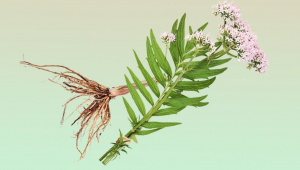
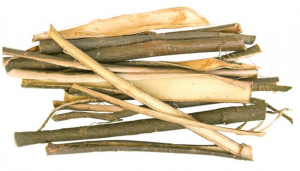
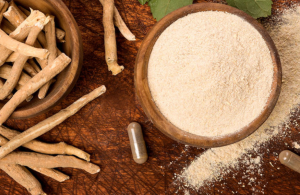
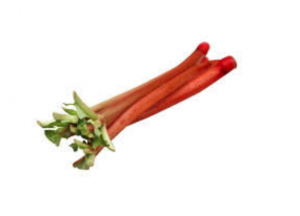
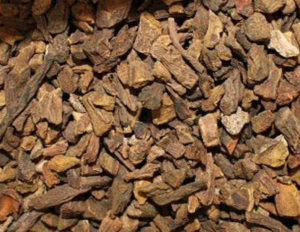
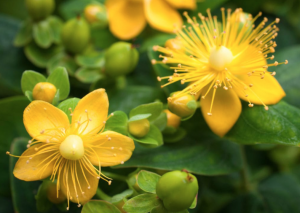



Follow Our Every Move